Restoring hope by returning to school, safely
“I missed my teachers most. They are the ones who make me love learning. When I was at home, no one encouraged me to read and work hard as my teachers do here in school. Teachers inspire me daily. That’s why I missed them a lot when I was away,” said Nelson.
Nelson is a student at Shinyikha Primary School in Kenya, where he recently returned to class, along with his agemates to schools across the country, in January. Nearly a year since schools closed nationwide to help stop the spread of the novel coronavirus, a lot has changed as students and teachers find themselves back at their desks once again.
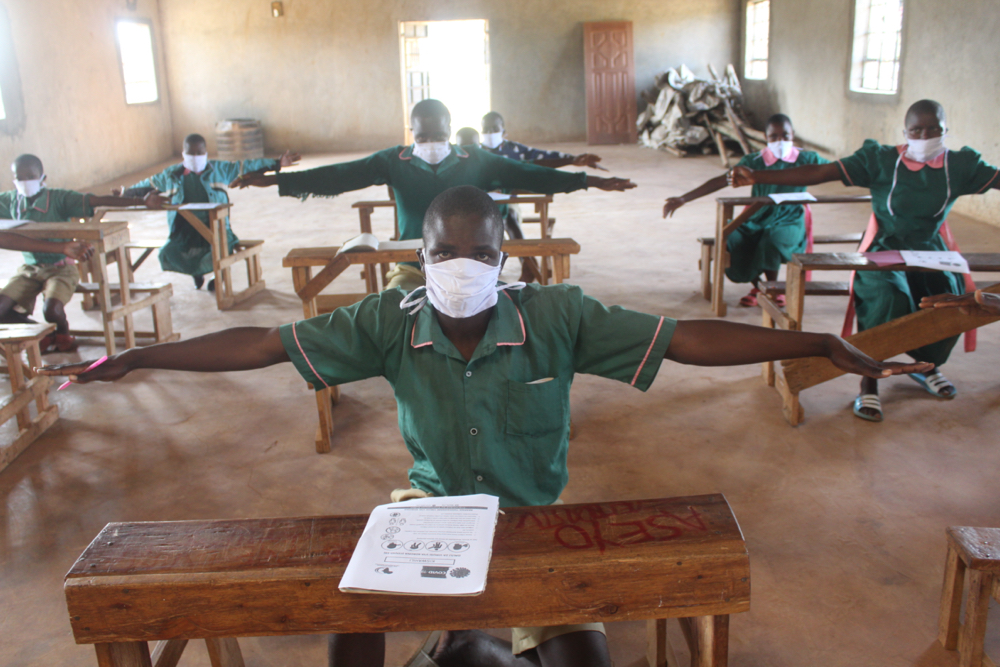
Nelson practices a physical distancing check during our COVID-19 prevention at his school with a prevention pamphlet sitting on his desk.
“I love reading, so when schools closed, I lost hope in learning. At home, I couldn’t find time to read. All the work was on me, and it was very tiresome,” Nelson continued.
“I feel that the virus has done enough damage, and I wish it would disappear. I worry that if it continues, we will lose our freedom of movement, and we will also continue losing people to the virus,” he said, citing Kenya’s strict lockdown measures that have ebbed and flowed along with the country’s case numbers since last March.
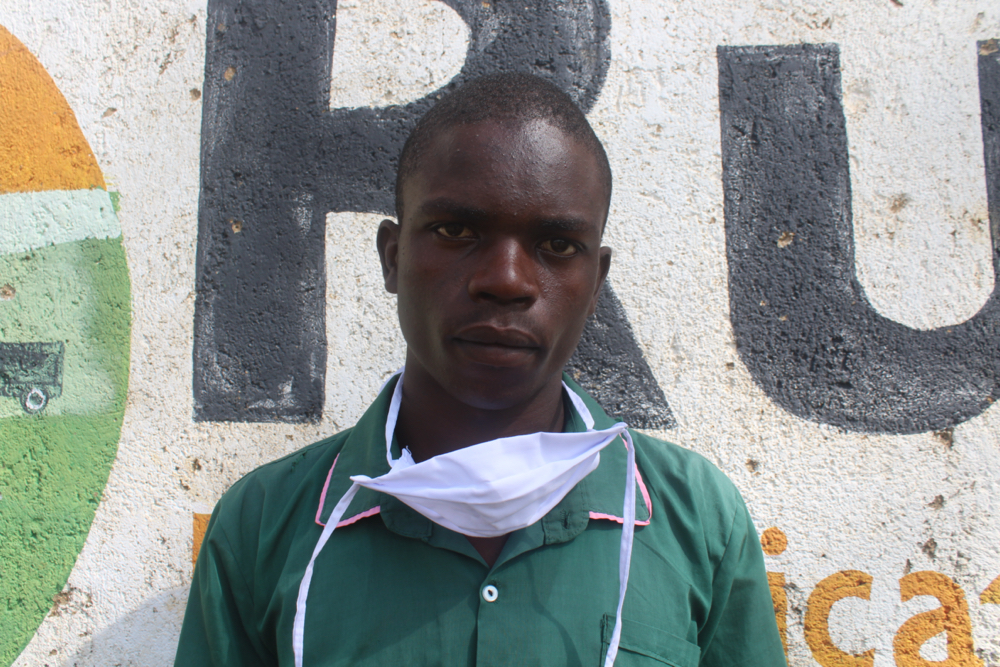
Nelson
“I feel so good to be back in school. I’m happy because learning will continue, and I will be able to continue being close to my teachers.”
To encourage a safe return to their studies, schools everywhere took steps to improve sanitation and hygiene and follow COVID-19 precautions to the best of their ability.
“The school had set up handwashing stations, and teachers were encouraging us to wash our hands more frequently. The school insisted on wearing masks,” Nelson said.
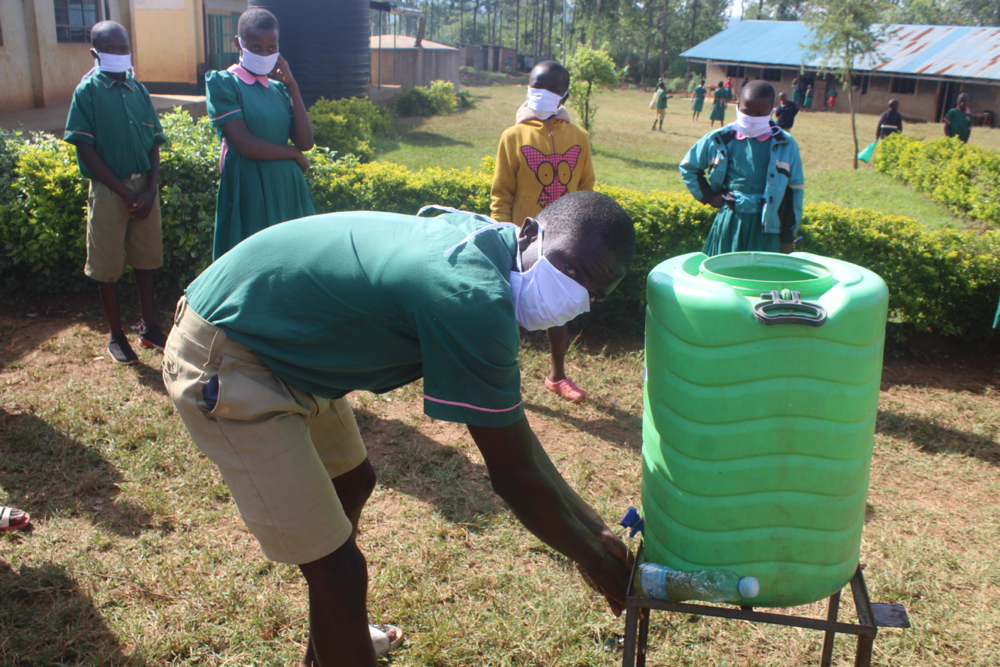
Nelson demonstrates handwashing to his classmates at the training.
Madam Wilkister Muteyi, the school’s health teacher, said it was not just the students they were preparing for the return to school, either.
“Parents were called, and they were educated on the importance of having their children wear masks, and they were told to provide masks for their children. The school also ensured that there was soap for handwashing,” she said.
“At first, it was a challenge to remind the students to be wearing their masks, washing their hands, but now, they have learned, and there is no struggle between the staff and the students,” Madam Muteyi added.
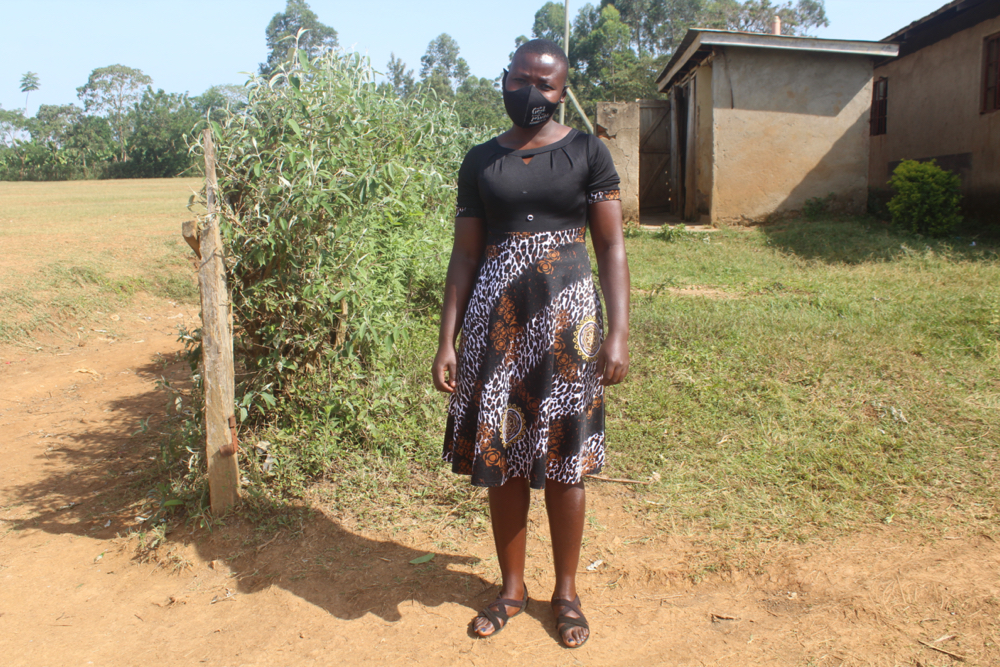
Madam Wilkister Muteyi stands at the school’s entrance.
To support the Kenyan Ministry of Health and Ministry of Education’s efforts in helping schools navigate through the pandemic, our teams held a COVID-19 prevention training at Nelson’s school to remind students and staff of the best ways they can protect themselves against the virus.
After the training, Nelson, who is also the elected Chair of the school’s student health club, said he had a few changes in mind for his list of personal protective measures.
“I should avoid crowds at home, and in school, I should always consider social distancing wherever I am, when washing hands, I should use soap, not just water, and I should always wear my mask,” he said.
The good news at Shinyikha Primary School is that their rain tank helps provide the clean water they need not just for drinking but for the increased handwashing and cleaning activities required to stay open.
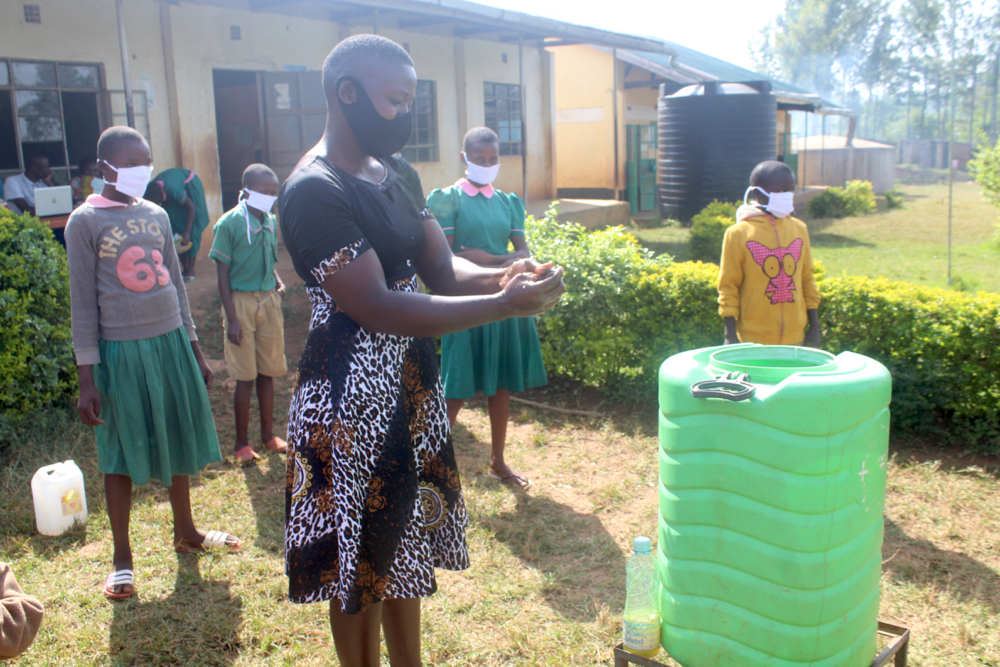
Madam Muteyi demonstrates handwashing to the students at training.
“Since the installation of the water tank, we have had enough water at the school compound. The school’s cleanliness has greatly improved because now we access water in the school compound,” said Nelson.
Madam Muteyi agreed with Nelson, noting that since the rain tank’s installation, “we have all learners attending school and absenteeism has reduced. We have clean drinking water in the school compound, so the cases of sicknesses have highly reduced.”
For Madam Muteyi, the school closures meant changing her entire lifestyle as a teacher.
“Life became so boring; just sitting at home was not easy. I missed offering my services to my learners and being close to them.”
Now, back in her classroom, at least some things feel closer to the way things were before the pandemic.
“I feel so good to be back at school. I feel life has come back to normal. I will continue offering my best services to my learners like guiding and counseling, offer spiritual services, and bringing the best out of each learner.”
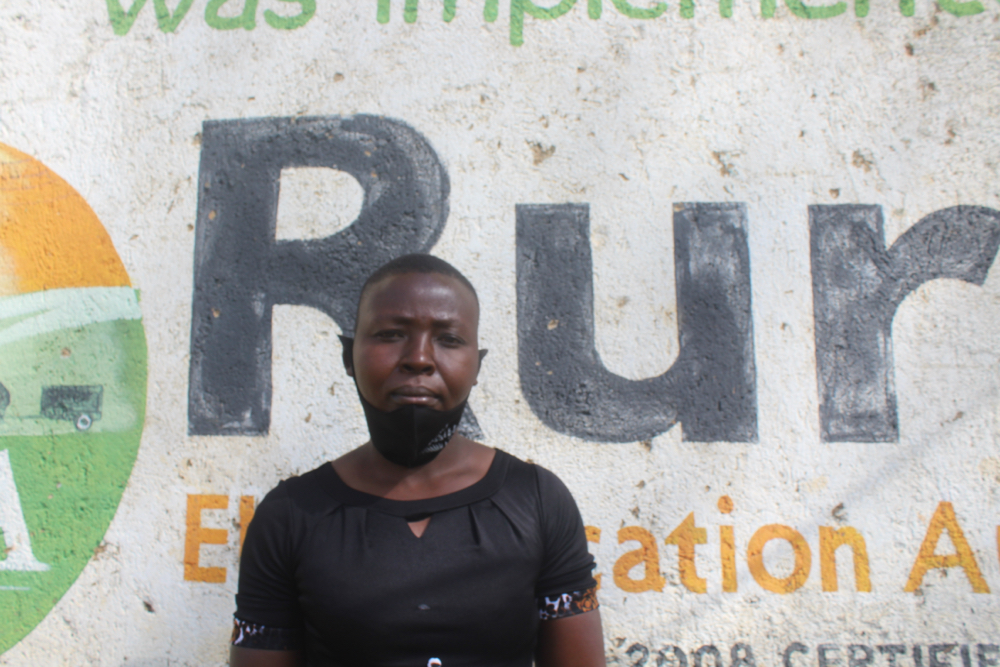
Madam Muteyi
Tweet